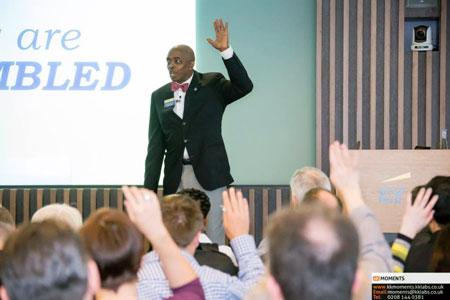Some years ago, I received a disturbing private message from a fellow speaker ‘Sam’, in another country. They were attending a weekend seminar by a very prominent, highly paid professional speaker, but they admitted that they were inclined to leave immediately. When I asked “Why?” they said, “I can’t believe this person just told Val’s story…almost WORD FOR WORD! I was recording; let me send you the audio file.” ‘Val’ is a dear friend, so I was intrigued. Sure enough, loud and clear, there was Val’s story…one which they had told for years…and the speaker was telling it as if it was THEIR experience! I encouraged ‘Sam’ to stay at the event, learn all they could, and also to keep track of what the speaker said throughout the weekend…despite the obvious plagiarism.
PLAGIARISM is defined as ‘the practice of taking someone else’s work or ideas and passing them off as one’s own.’
In this instance, it was plain; it was obvious; it was blatant. Immediately, I contacted Val to share what I had heard. To my surprise, Val said, “This is not the first time that this speaker has done that! Several people heard them telling my story several months ago at another event and informed me about it. When I confronted them about it, they admitted what they had done, saying that they believed my story was similar to their own experience, and that MY story…complete with MY dialogue, and my personal catch phrase, was a perfect fit for them. They apologized and promised that it wouldn’t happen again. Now this! They have been using my material in live presentations on big stages, and have even included it in their own training program!”
This single incident led to a series of events including consulting an attorney, and considering professional sanctions. All because a speaker chose to use someone else’s story. The consequences of plagiarism extend beyond the legal. If you’re ever tempted to use a story you’ve heard, and tweak the story so it sounds like YOU experienced it, please consider this: plagiarism will have a lasting PERSONAL impact. Your integrity, your honesty, and your character will be called into question. People won’t believe you. People won’t TRUST you. You may think that you NEED someone else’s story because it’s so much ‘better’ than yours. You don’t. Your audience needs YOUR story. Your audience is comprised mostly of people just like YOU. Your life likely mirrors theirs in more ways than you can imagine. It’s that COMMON EXPERIENCE that makes YOUR STORY valuable to your audience.
It’s possible that you don’t believe that you HAVE stories, so over time, I’ll be sharing ways to UNCOVER powerful stories from your own life; there’s no need to plagiarize. Here’s an idea. MAINTAIN A STORY FILE. Whenever you have an uncommon or unusual experience, make a note of it. If you have an experience that generates any type of emotion, make a note of it. You can create a desktop folder on your computer, use a digital recording device or mobile phone, or write it down using good old-fashioned pen and paper…whichever serves you best. Just keep a record of it. You never know when that experience might generate the PERFECT story for you. You have the material, and I’ll help you to uncover it. Remember…you NEVER want anyone in your audience asking the question, “WHOSE STORY IS IT?”

STORY IDEA:
As you go through your day, make a note of the things that AMAZE you. Consider the emotional impact on you, and consider if the experience contained a lesson. The value may not be deeply philosophical, but it could be a wonderful resource for entertainment or humor. For example, I was recently in Delhi, India and I was amazed at the way everyone navigates the roads….which are used simultaneously by animals, pedestrians, cyclists, two-wheelers (motorcycles), auto rickshaws (tuk tuks), buses, lorries, light trucks, large trucks, farm tractors, and any other type of vehicle you can imagine. It’s complete chaos, yet everyone gets where they’re going without incident. It’s truly a marvel. The following day I made reference to it in a speech and it was an excellent source of humor. You might not immediately think of an application, but when you need it, you will have it!

STORY Q & A
Does a story ALWAYS have to include humor?
Not necessarily. A well-told story touches any or all of the 6 BASIC EMOTIONS: HAPPINESS, SADNESS, ANGER, SURPRISE, FEAR, DISGUST. Some stories aren’t meant to be humorous, but an emotional connection helps to deliver the message.
Whatever the emotional impact, you make a powerful connection when you TELL YOUR STORY!

